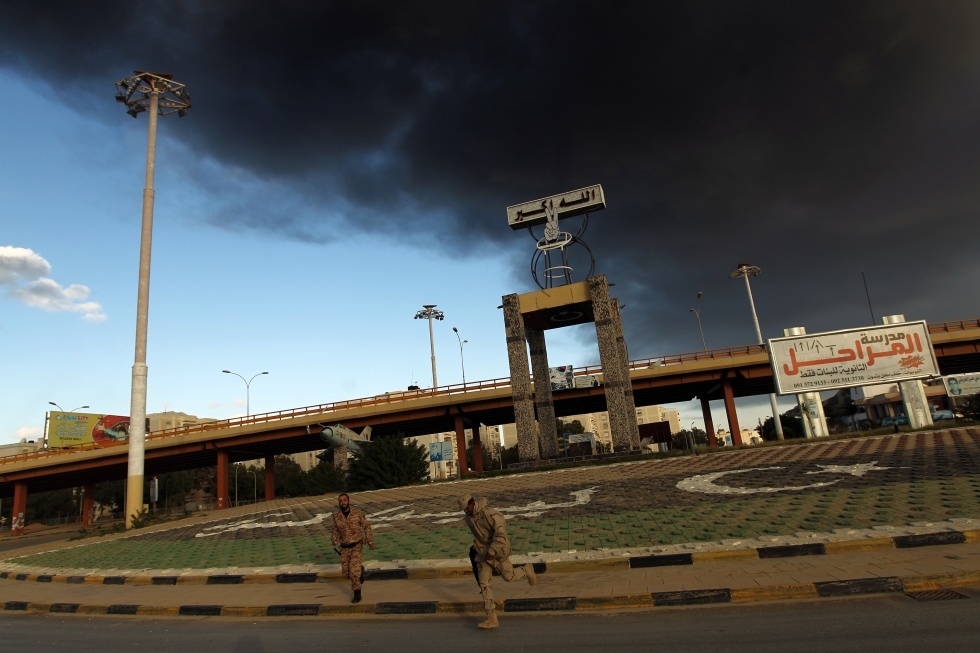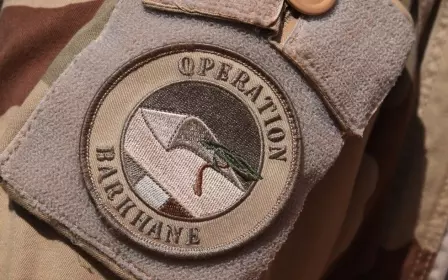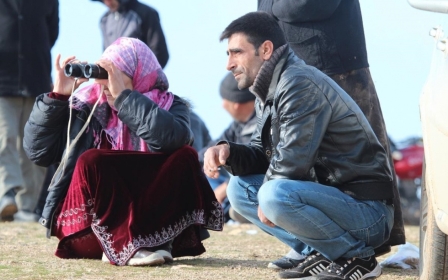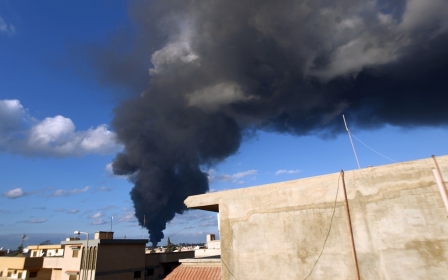Egypt calls for Libya travel ban following kidnapping of Egyptian nationals

Egypt’s Foreign Ministry has called for Egyptians to be banned from travelling to Libya, amid concerns over the fate of 13 Egyptian nationals kidnapped by militants in the central town of Sirte on Saturday.
“Travel to Libya must be stopped because of the exceptional circumstances there,” Foreign Ministry spokesperson Badr Abdel Aty told Egyptian satellite station ONTV on Saturday night.
The situation in Libya, with almost daily kidnappings and attacks on civilians as well as members of the security services, is a “catastrophe,” said Abdel Aty.
“There is no Egyptian diplomatic presence on the ground there, and embassy and consulate staff have been evacuated,” the official explained.
According to Abdel Aty, Egypt’s Foreign Ministry has supervised the evacuation of 40,000 of its nationals from Libya since the current crisis hit.
However, large numbers are thought to have remained, and Abdel Aty confirmed on Saturday that many Egyptian nationals had in fact returned to Libya after initially being evacuated some months ago.
Egyptian Coptic Christians have recently come under attack, and on Saturday 13 Christian men were kidnapped from their residential compound by around a dozen masked gunmen.
Eyewitnesses told the BBC that the Muslims in the group were separated from the Christians during the early-morning raid. The Christians were then driven away, and have not been heard from since.
The reported kidnapping comes less than a week after seven other Egyptian Christians disappeared after being stopped at a checkpoint as they tried to leave Sirte.
Hanan Aziz, who lives in the same complex as the men abducted on Saturday, told Associated Press he had survived the raid because he did not open his bedroom door when he heard his friends screaming.
“I want to die with them,” he said.
Islamic State kills 14 Libyan soldiers
In Libya’s mainly desert south, Saturday saw a mass execution of soldiers from Libya's official army by militants affiliated to the Islamic State, a group mainly active in Iraq and Syria.
14 soldiers loyal to Libya's House of Representatives (HoR) and General Khalifa Haftar's anti-militia battle were executed by Islamic State militants after an ambush on a road just north of Sebha, the principal town in the country’s sparsely populated southern region.
Confirmation came from a statement issued on Saturday by the office of Abdullah al-Thinni, who heads the HoR.
A website apparently run by a group calling themselves Islamic State in Libya posted pictures purporting to show the execution of one of the group of soldiers, who had been fighting with the 168th Cavalry Regiment.
The deaths are a blow to the HoR-aligned army, which is currently embroiled in a lengthy battle against several militant groups including Libya Dawn, Ansar al-Sharia and now Islamic State.
The army recently added four new Russian-built war planes to its arsenal, but officials have warned that Libya’s army remains dangerously under-resourced.
The four new aircraft, built by Russian manufacturer Sukhoi, have already been used to launch air strikes against militant sites, according to a military source who spoke to Arabic-language newspaper al-Sharq al-Awsat on Saturday.
The addition is a boost to Libya’s air forces, which before the addition operated 10 Sukhoi planes.
“The new Sukhoi planes have great capabilities, and can remain in the air for long periods. They can manoeuvre and launch strikes two or three times [in the same flight],” the military insider explained in a lengthy interview with the London-based paper.
However, he said, the Libyan air force’s capacity remains severely limited.
“The air force’s potential is still very weak.”
New MEE newsletter: Jerusalem Dispatch
Sign up to get the latest insights and analysis on Israel-Palestine, alongside Turkey Unpacked and other MEE newsletters
Middle East Eye delivers independent and unrivalled coverage and analysis of the Middle East, North Africa and beyond. To learn more about republishing this content and the associated fees, please fill out this form. More about MEE can be found here.




